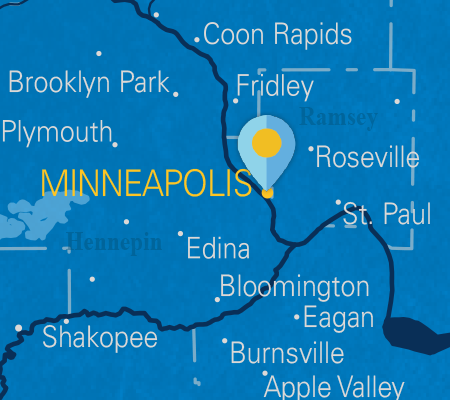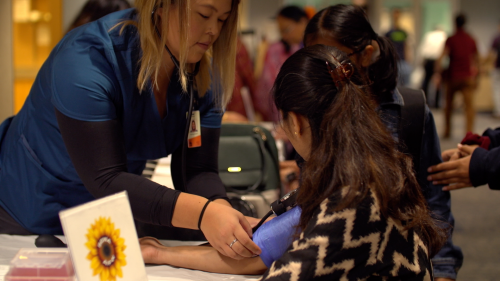
Enhancing family wellness for south Asians in Minnesota
On any given Sunday, Asian Indians originally from places like Pakistan, India, Nepal and Bangladesh, now living in the Twin Cities, go to local houses of worship to pray. That’s exactly where Raj Chaudhary sets up her free health clinics; the places she knew where she could reach them in a way that made sense to the community.

Formed in 2004, SEWA-AIFW is a non-governmental, nonprofit organization committed to bringing total family wellness to the South Asian Indian community.
“We had to make it easy for them to get medical care,” Chaudhary explains. “And we needed to have volunteers from the same community who understand their cultural traditions and customs to provide culturally-specific solutions.”
Chaudhary is the executive director and one of the founders of SEWA-AIFW, a Minneapolis-based nonprofit serving roughly 80,000 south Asians living in the region. SEWA means ‘to serve’ in Hindi and AIFW stands for Asian Indian Family Wellness.
Chaudhary says the clinic addresses several major health issues in the community, including diabetes, heart disease, poor nutrition and mental health.
At the free health care clinics, volunteer physicians, nurses and students measure glucose levels, check blood pressure and conduct heart screenings. From there, they make recommendations to people about how to lead healthier lives and where to go for additional help.
Dr. Roli Dwivedi, a University of Minnesota physician, says she volunteers to help educate people in her community about the importance of eating right, exercising and taking care of themselves.
“I’m trying to empower them and give them the right resources so that they can live better lives and can get healthier,” Dwivedi says.
Before the health clinics, SEWA-AIFW began by attempting to address domestic violence, which is prevalent in the culture. The organization started with emergency services and has since expanded to offering housing and other support services.
“We’re a very traditional and private culture and this was initially seen as an invasion of privacy,” Chaudhary says. “But the intent was simply to stop the violence.”
The clinics now give Chaudhary and her volunteers access to community members and allows them to share information about healthy choices, along with issues such as mental health, voter registration and lead testing.
One of the new projects SEWA-AIFW wants to launch is an adult day care to keep seniors more connected with each other and the community to alleviate isolation and depression.
Chaudhary and Dr. Dwivedi say the efforts are working.
“I see that their health is improving,” Dr. Dwivedi says. “These clinics allow me to make a difference.”
“Service is the most important thing,” Chaudhary adds. “If we are not connected to communities and serving them, we are not doing anything.”
